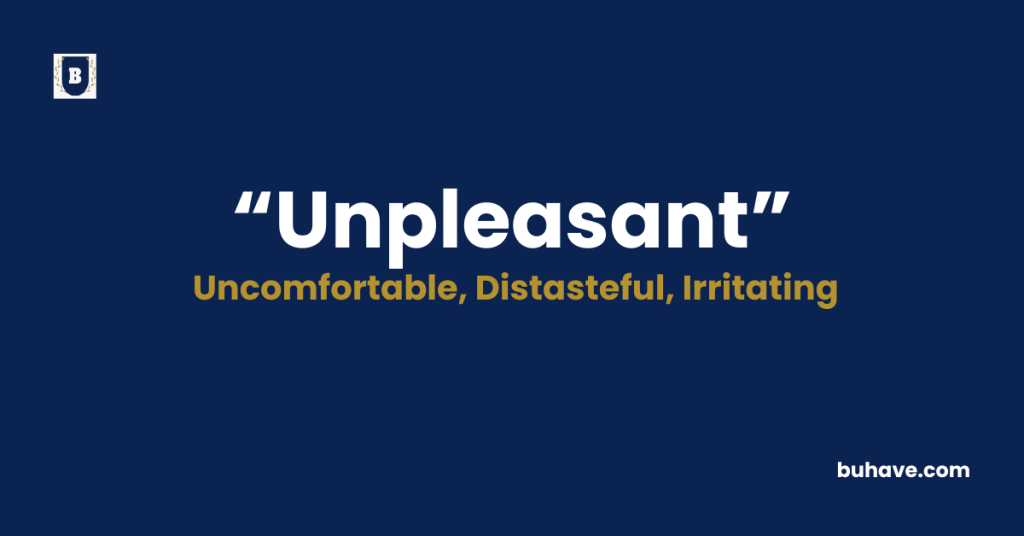The word Unpleasant (adjective) describes something that is disagreeable, uncomfortable, or offensive, often leaving a bad impression. In this guide, you’ll learn the full definition, synonyms, antonyms, etymology, and real-life examples of how to use Unpleasant correctly in sentences.
Unpleasant Explained in Depth
A complete and detailed guide to the word “Unpleasant” including meaning, definition, examples, etymology, synonyms, and antonyms.
Meanings of Unpleasant
Unpleasant means something that is disagreeable or not enjoyable. It can refer to experiences, situations, smells, or feelings that cause discomfort or dissatisfaction. For example, an unpleasant odor might make you want to leave the room, and an unpleasant encounter with someone can ruin your day.
Definition
Unpleasant refers to something that causes discomfort, annoyance, or displeasure. It highlights a negative experience that makes you feel uneasy or upset. For example, a rainy day might feel unpleasant if you were hoping for sunshine.
Etymology
The word unpleasant is formed by combining the prefix “un-” meaning “not” with “pleasant” (from Middle English, originally meaning “pleasing” or “delightful”).
The term has been used since the 15th century to describe experiences or sensations that are not enjoyable or agreeable.
Example Sentences
- The smell coming from the garbage can was extremely unpleasant.
- It was an unpleasant conversation that left everyone feeling tense.
- Working in the heat all day can be quite unpleasant.
Unpleasant Synonyms
- Disagreeable
- Offensive
- Annoying
- Distasteful
- Irritating
- Awkward
- Unsavory
- Disturbing
- Uncomfortable
- Nasty
Unpleasant Antonyms
- Pleasant
- Enjoyable
- Delightful
- Comfortable
- Agreeable
- Appealing
- Nice
- Friendly
- Lovely
- Charming
FAQs about Unpleasant
Here are some frequently asked questions (FAQs) about the word “Unpleasant”
1. What does “unpleasant” actually mean?
“Unpleasant” means something that is not enjoyable, often causing discomfort, annoyance, or displeasure.
2. Is “unpleasant” always negative?
Yes. It consistently implies an experience or feeling that is disagreeable or uncomfortable.
3. Can “unpleasant” describe people?
Absolutely. Someone can have an unpleasant personality or behavior, making them difficult to be around.
4. How is “unpleasant” different from “bad”?
“Unpleasant” focuses more on discomfort or displeasure, while “bad” can be broader, covering moral judgments or overall quality.
5.Is “unpleasant” commonly used in everyday conversation?
Yes, it’s commonly used to describe anything that leaves a bad impression or feeling.

















